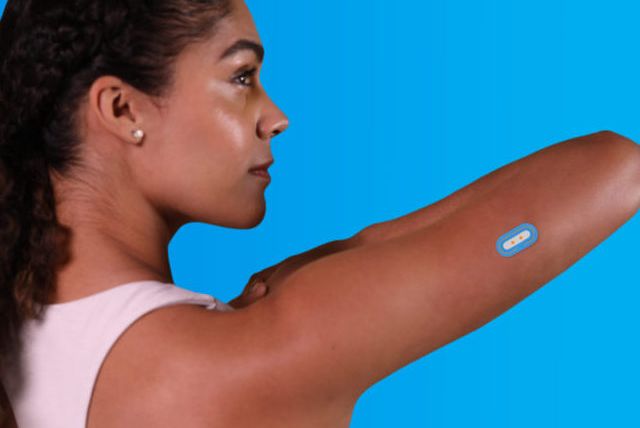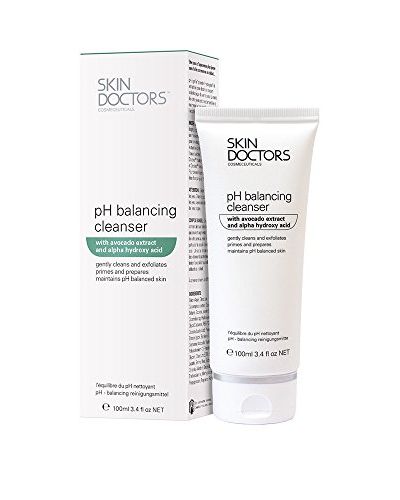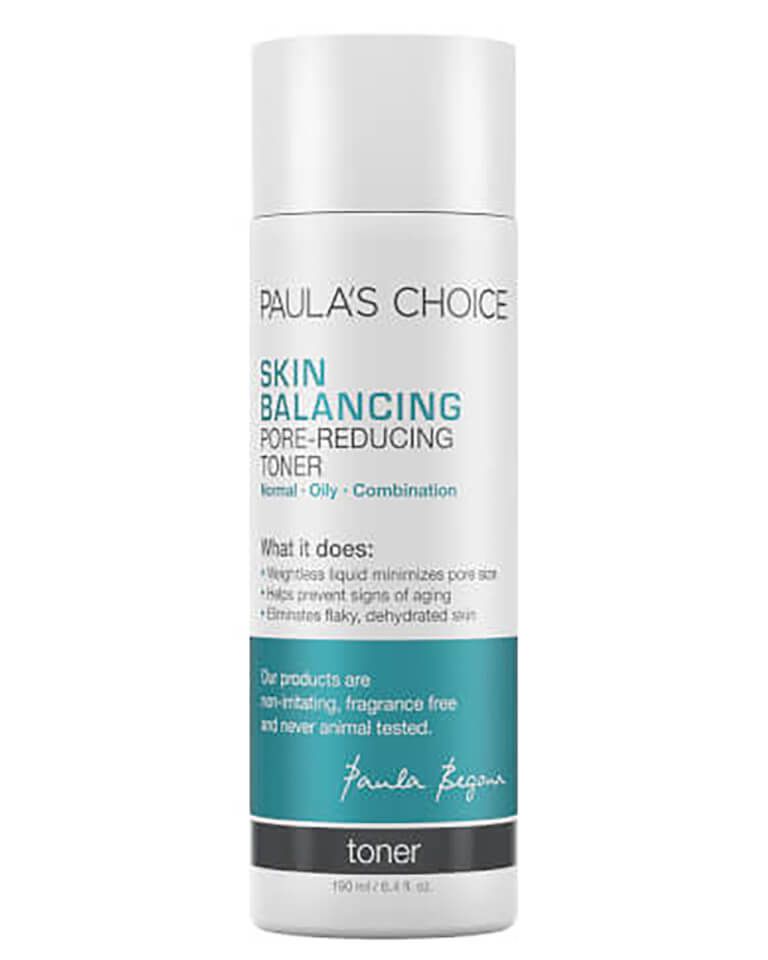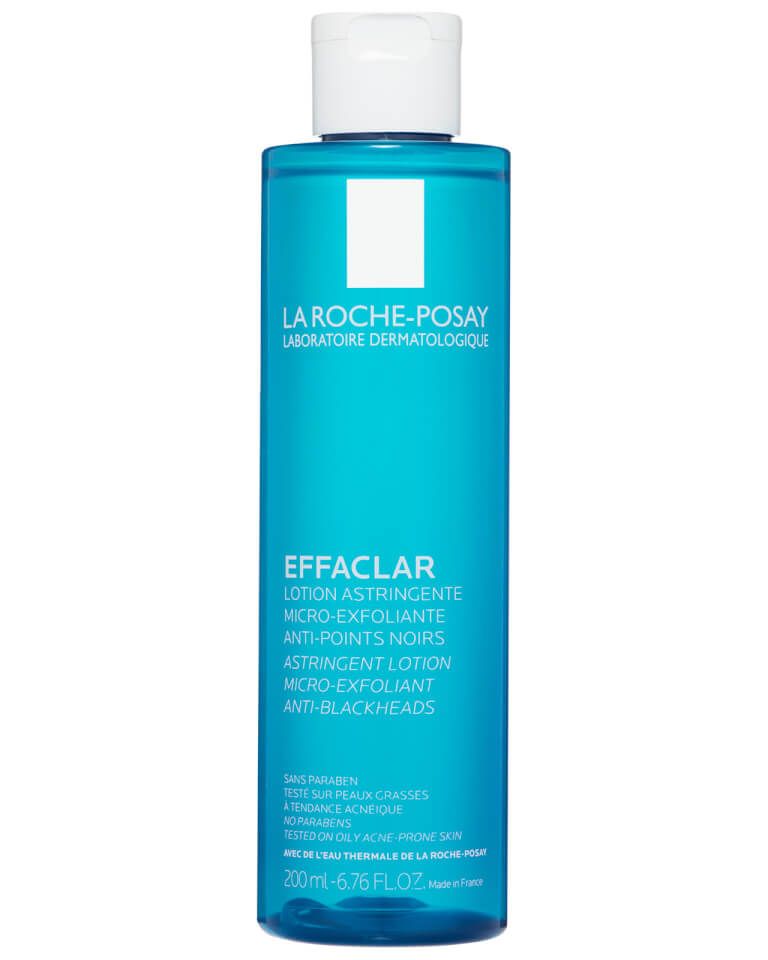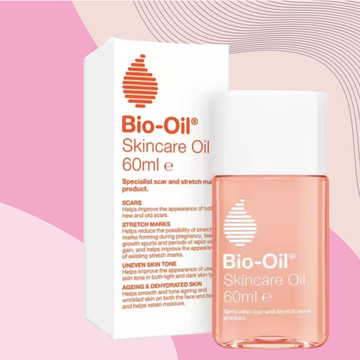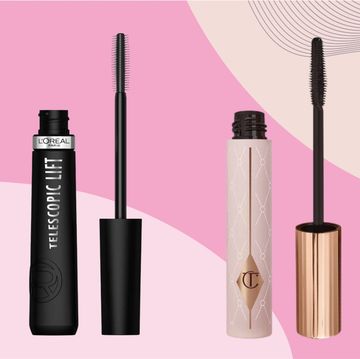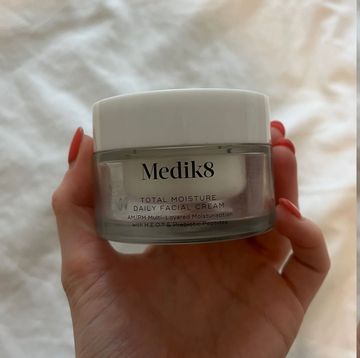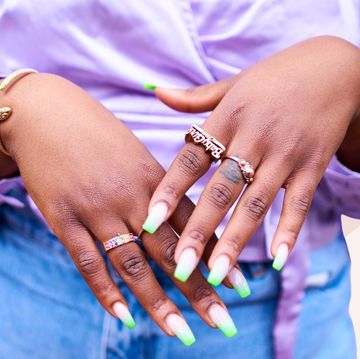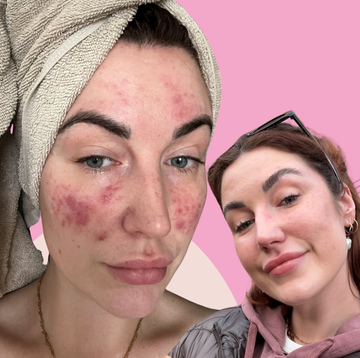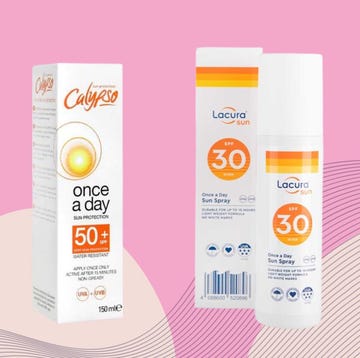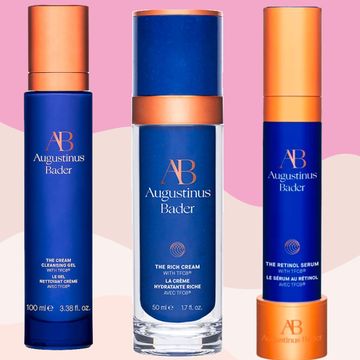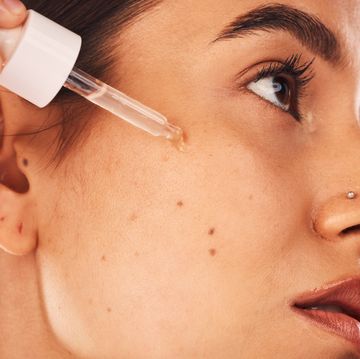You're in a committed relationship with your Fitbit, monitor your shuteye via SleepCycle and leant how to calculate your macros in 2015. Now? It may be time to take tracking to a whole other place: the skincare sphere.
Fresh tech is promising to help you to to understand your dermis in a supercharged way – by showing you how to test your skin pH and monitor the balance of your body's largest organ.
My Skin Track pH is a small, wearable sensor, which adheres to the skin like a plaster, and has been developed by skincare stalwarts La Roche-Posay. Just granted a CES (Consumer Technology Association) 2019 Innovation award in the US, which celebrates moves and shakes in design and engineering, it could herald a new way of thinking about your skin.
It works like this. You apply the sensor somewhere on your arm, and download an associated app. The information is zapped from the sensor to your phone.
The big idea is that, in doing so, a dermatologist can prescribe you a more bespoke skincare regime – mostly beneficial for people with problem skin that deals with acne, rosacea or eczema – eliminating some of the guess work typically involved.
How to test skin pH: why does it matter?
Most people’s pH level ranges between 4.5 to 5.5. When this balance is compromised through environmental factors and other conditions, it can trigger inflammatory responses including dryness, eczema and atopic dermatitis.
A shift towards the alkaline, for example, can result in the propagation of bacterias known to be involved in the development of acne.
Knowing our individual pH level could enable us to create a more customised product regime to care for our skin and eradicate or manage those issues.
How to test skin pH: the science
Previous methods of testing skin pH levels required hefty electronics and large samples of sweat, whereas this tiny strip enables you to generate accurate readings from both a tiny device and minute amounts of perspiration.
The small, flexible sensor is placed on to the skin and measures individual pH levels by capturing traces of sweat from skin pores through a network of micro channels. All you need to do is place the sensor on your inner arm, leave it for 5-15 minutes, open the app, photograph the sensor and wait for the tech to read the measurement. This will then reveal your skin's pH.
Once you have the result, the app conjures up customised La Roche Posay recommendations, which help to balance your pH level and personally care for your skin. (There's more about the device here.)
How to test skin pH: what do the skin experts think of this technology?
Obviously, there's a clanger of an issue, here. Whilst the tech can work for a La Roche Posay-specific skincare regime, it's not likely to transfer to one that spans multiple brands. Why? Many companies are reluctant to share deets about the pH of their formulations – and the app is not about to throw up recommendations for competitors.
'It’s great that skincare tech is advancing,' says Pamela Marshall, a skin aesthetician and co-founder of skincare shop, Mortar & Milk. 'But. I’m not sure what consumers will be able to do with this information, as most of them don’t really understand the technical functions of their skin.'
'Yes, they can buy the recommended La Roche Posay products but how will they apply this knowledge when purchasing other skincare?' Marshall also notes that there may be a disconnect between the pH of your inner arm and your face, stating that the two are likely to be different, owing to environmental factors and the products we use on our skin.
However, she says that, once you get a dermatologist involved, things might look different. 'If consumers are able to take this information to a dermatologist, who can unbiasedly look at what the skin needs and help to see if the patient has a pH related skin disease, then I can see how that would be helpful,' she says.
But La Roche Posay say that not everyone has access to dermatologist, of course – and they want to help at scale, not just the uber privileged few.
'Our mission is to help educate consumers to take ownership and manage their own skin concerns, particularly as only 2% of the UK population have access to a dermatologist,' a spokesperson says. 'We aim to empower individuals to self-assess and find the right routine for them and help them adopt behaviours to help balance their pH.'
When is it available?
My Skin Track pH will initially be introduced this year through select La Roche-Posay U.S. dermatologists, with the goal of amassing new research and, ultimately, launching a direct-to-consumer (i.e. dermatologist-free) product in the UK at a later stage.
Sure, it's early days – and there are potential kinks in the chain to maximising this tech in a way that's beneficial to people who don't have a skincare specialist on speed dial. But as a potential new way of aiding the acne, rosacea and eczema that so many of us stress over? It could be a light at the end of the 'will this work?' tunnel.
Want some products to help to balance your pH? Walk this way
Harnessing the power of Lactic Acid and Cocamidopropyl Betane, this deeply cleansing formula removes dead, dull skin cells and unclogs pores, whilst maintaining the skin's pH level. It is also excellent at improving the appearance of scars, blemishes and fine lines and it uses AHAs to lessen excess oil and impurities from the skin.
This helps to re balance your skin after cleansing. Using antioxidants, plant extracts and niacinamide it helps to combat oily skin and de-clog pores. It also helps skin stay hydrated and promotes clear and happy skin.
Skin prone to sensitivity? This is the toner for you. The non-greasy formula soothes, tones, and protects skin after cleansing and it respects the physiological pH of the skin whilst caring for your complexion.


